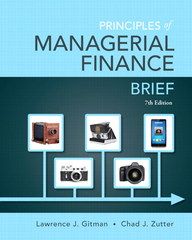Answered step by step
Verified Expert Solution
Question
1 Approved Answer
(intergrative case) You need to intergrate walmart financial analysis for year 2014 through 2016 and answer problem a through d. a. Design a spreadsheet and

(intergrative case) You need to intergrate walmart financial analysis for year 2014 through 2016 and answer problem a through d.
a. Design a spreadsheet and prepare a set of financial statement forecasts for Walmart for Year +1 to Year +5 using the assumptions that follow. Project the amounts in the order presented (unless indicated otherwise) beginning with the income statement, then the balance sheet, and then the statement of cash flows. For this portion of the case, assume that Walmart will exercise its financial flexibility with the cash and cash equivalents account to balance the balance sheet. b. If you have programmed your spreadsheet correctly, the projected amount of cash grows steadily from $13,675 million at the end of Year +1 to a whopping $44,459 million at the end of Year +5 (allow for rounding), which is 18.6% of total assets. Identify one problem that so much cash could create for the financial management of Walmart. C. Suppose that Walmart announces that it will augment its dividend policy by paying out 42% of net income plus the amount of excess cash each year (if any). Assume that during Year +1 to Year +5, Walmart will maintain a constant cash balance of $8,705 million (the ending cash balance in 2016). Revise your forecast model spreadsheets to change the financial flexibility account from cash to dividends. Determine the total amount of dividends that Walmart could pay each year under this scenario. Identify one potential benefit that increased dividends could create for the financial management of Walmart. d. Calculate and compare the return on common equity for Walmart using the forecast amounts determined in Requirements a and c for Year +1 to Year +5. Why are the two sets of returns different? Which results will Walmart's common shareholders prefer? Why? a. Design a spreadsheet and prepare a set of financial statement forecasts for Walmart for Year +1 to Year +5 using the assumptions that follow. Project the amounts in the order presented (unless indicated otherwise) beginning with the income statement, then the balance sheet, and then the statement of cash flows. For this portion of the case, assume that Walmart will exercise its financial flexibility with the cash and cash equivalents account to balance the balance sheet. b. If you have programmed your spreadsheet correctly, the projected amount of cash grows steadily from $13,675 million at the end of Year +1 to a whopping $44,459 million at the end of Year +5 (allow for rounding), which is 18.6% of total assets. Identify one problem that so much cash could create for the financial management of Walmart. C. Suppose that Walmart announces that it will augment its dividend policy by paying out 42% of net income plus the amount of excess cash each year (if any). Assume that during Year +1 to Year +5, Walmart will maintain a constant cash balance of $8,705 million (the ending cash balance in 2016). Revise your forecast model spreadsheets to change the financial flexibility account from cash to dividends. Determine the total amount of dividends that Walmart could pay each year under this scenario. Identify one potential benefit that increased dividends could create for the financial management of Walmart. d. Calculate and compare the return on common equity for Walmart using the forecast amounts determined in Requirements a and c for Year +1 to Year +5. Why are the two sets of returns different? Which results will Walmart's common shareholders prefer? Why Step by Step Solution
There are 3 Steps involved in it
Step: 1

Get Instant Access to Expert-Tailored Solutions
See step-by-step solutions with expert insights and AI powered tools for academic success
Step: 2

Step: 3

Ace Your Homework with AI
Get the answers you need in no time with our AI-driven, step-by-step assistance
Get Started


